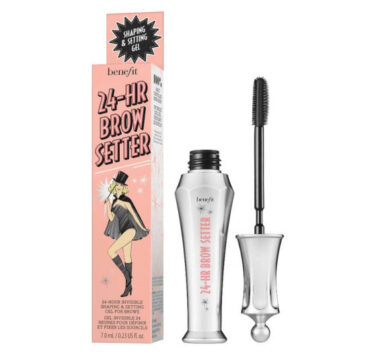The Artist and the Subject: A Reworking Of Working Together
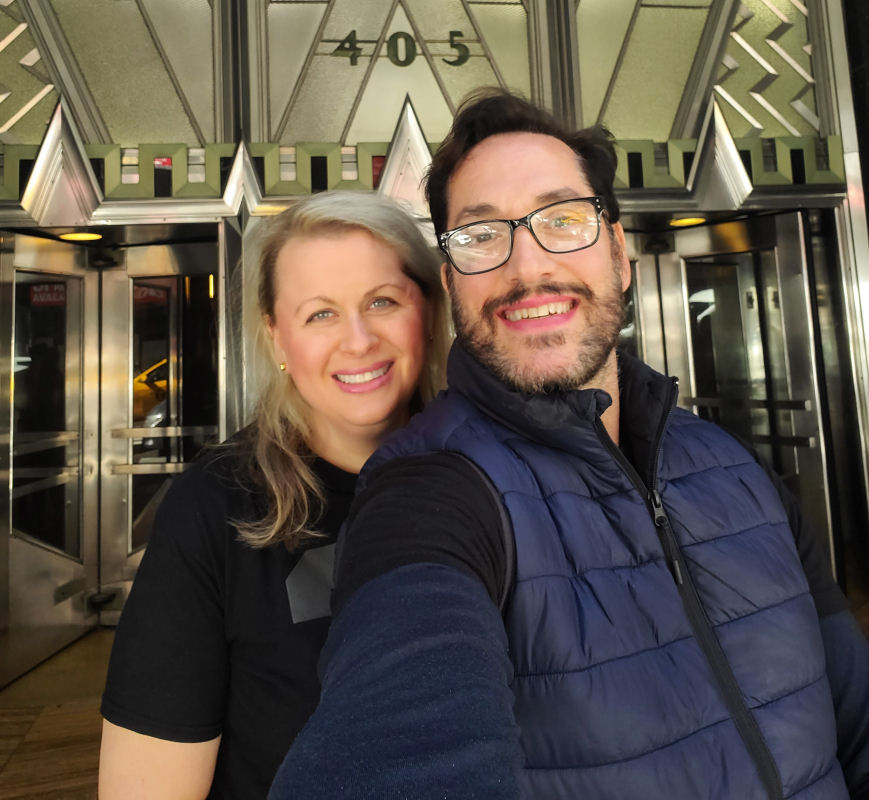
Why It Is
Jeffrey is an established global makeup artist, hair stylist, and parfumier. Kate, an author, marketer, and strategist, worked in the cosmetics industry for nearly eleven years. While Jeffrey is – by definition – the artist for color and skincare, there is value in Kate’s perspective regarding relationships, responses, and results, as there is, of course, in Jeffrey’s. Since 2013, when they first worked together, they have found that it’s easy, encouraged, and effective to change hats and present what they know, based on their individual experiences.
Because everything, regardless of where we learned it, is applicable when we want things to be successful and fun and real.

What It Is
The Artist and the Subject was born of conversations between people who met via work and became friends. Some of their work-related conversations were about subjects that overlapped and aligned, which was surprising, because eye shadows and import taxes don’t have much in common with UX and ghost writing.
Fact: what initially appeared to have to nothing to do with each other actually did. Jeffrey and Kate will present lessons and tactics relevant to beauty, wellness, and working together. And it all began when they talked about stuff.
The Artist and the Subject premiered October 2021 on In Step Beauty.
Chapter 2 – What is the Transformation?
Jeffrey: Welcome to The Artist and the Subject! [applause]
Kate: We are back to share what we learned when we weren’t expecting to learn.
Jeffrey: We weren’t expecting to learn. Right? As we like to say, if you’re not learning anything, you’re not actually there.
Kate: Amen. Chapter 2 – What is the Transformation? – gets into embracing, accepting, and creating change, which will lead to new, to better, and to fire.
Jeffrey: Change is crucial. Period. It helps us to learn about ourselves which, in turn, helps us to grow and to become more confident. As we improve, our self-perception shifts, and this creates momentum. This momentum leads to change happening around us…
Kate: …and for us. Because things don’t happen to us. Things happen for us.
Jeffrey: They absolutely do. The good, the bad, and the crazy all happen for us.
Jeffrey and Kate: And, we will learn from all of it.
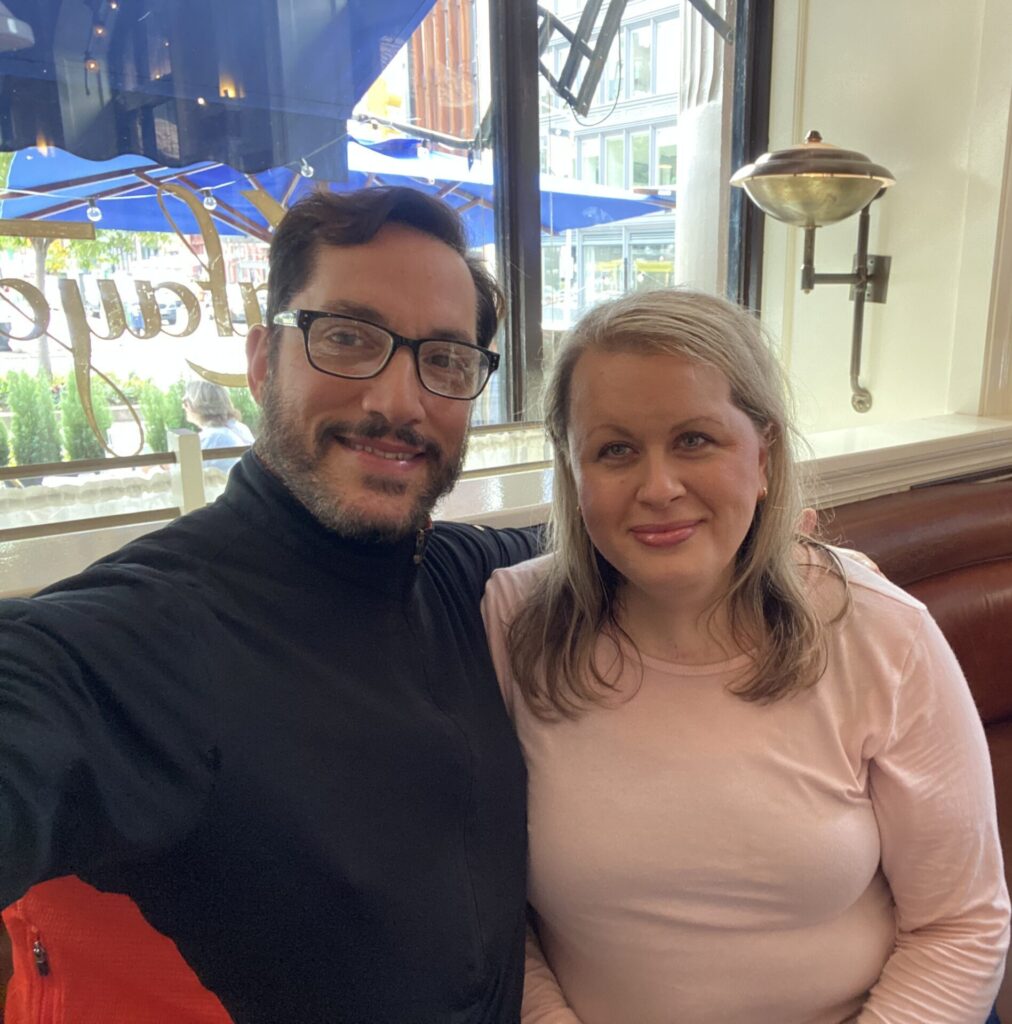
Jeffrey: So, Kate, isn’t change – particularly when you’ve been doing something for a while in a certain way – hard? Overwhelming? And, so unnerving that we keep doing it the ways we’ve always done?
Kate: As difficult as starting over, changing lanes, and making new can feel, these aren’t that difficult when we ask ourselves the hard questions (of which there are only three), and honestly answer them. The hard questions are:
1) Does what I do – and how I do – help me to accomplish and achieve in life?
2) For the most part, do I spend time with, work with, and surround myself with people who challenge and celebrate me, or people who criticize and diminish me?
3) Am I worth doing things differently so can I be happy?
Jeffrey: Those questions are heavy. Can we begin with the first one: what we do and how we do it?
Kate: Absolutely we can. The first question gets us to how we can evolve from one thing to another. That’s something I’d expect you to know a fair amount about, having been a celebrity makeup artist for more than 20 years.
Jeffrey: You know it! While it may seem next to impossible to transition from a standard, everyday look to a more intense, heightened look – wearing only tinted lip balm and mascara at work, and moving to dramatic eyes with contoured cheeks for a photo shoot (jazz hands not included) – in truth, it’s fairly easy.
Kate: And it is easy because during the day, whether you’re at work, at school, or doing something active, you’re better served by a complexion and colors that co-star, not compete, with your activities and intentions.
Kate: For years, I’ve done something I call the Five-Minute Face – primer, tinted moisturizer, brow pencil, eyelash curler, mascara, blush, maybe bronzer or highlight powder, and lip – for a workday, volunteering, or errands (before and during the COVID pandemic). It takes me about five minutes. Result? I look and feel rested, and entirely like myself.
Jeffrey: Your Five-Minute Face sounds like the whole package: what you need every day, simple, and effective. Why would you need, want, or do anything else?
Kate: Excellent questions. I will need, want, and do something else when what I’ve got, or I’m doing, limits my ability – or opportunity – to accomplish and achieve. Example: the photo shoots for my website and my book. As much as I would have loved to roll out of bed, brush my hair, floss my teeth, and wear cargo pants and a vintage t-shirt to my photo shoots – and there would have been nothing wrong with me doing that – I was worth applying real effort to accompany my good intentions for photo shoots with professional photographers.
I needed to co-create material that would be seen by and shared with people around the world. Before hiring me, reading my work, or hearing my interviews, they could know that I take who I am in the world as seriously as what I do in the world.
Jeffrey: I get it. Similar to switching from a day look to a night look, when you have different purposes and places, you spend the appropriate time and make the necessary efforts. Only by making these changes will your actions bring about your intentions.
Kate: Mic drop.
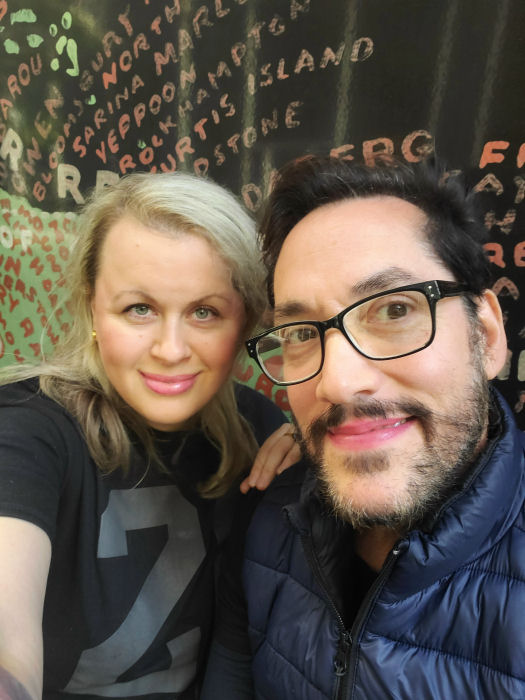
Jeffrey: The second hard question – who is in your life? – is definitely one I can relate to throughout my years in the beauty industry. I’ve worked with many people who never move away from the traditional (read: old) standards and practices in makeup application. I call this “blanket makeup.”
And, if I had a nickel for every artist who applied purple eyeshadow on green eyes, darker lipliner than lipstick color without blending the two, and giant false lashes on tiny eyes, I could have paid off mortgages throughout Beverly Hills.
Kate: Yikes. I’ll have to meditate away the image of huge lashes on eyes that can’t support them. People who behave the way you described are ones I call the unintentionally thoughtless. They may not mean any harm, and boy, do they cause it. My own experiences with choosing people who, for lack of a better term, showed me no love was first learned after nearly six years with my former fiancé.
Jeffrey: What did you do to counter, or conquer, how he didn’t actively and consistently appreciate you?
Kate: I know you want to ask how he didn’t authentiKATE me, and while I didn’t need anyone to do that, during the times I made real changes in life for the sake of our relationship (leaving a job I loved in a city I loved), I felt alone. When I asked, sought, and hoped for the slightest empathy – which I rarely did, because I thought I was already asking for too much – I was met with the equivalent of “Get over it,” “You’ll figure it out,” and, “Be patient.”
Kate: And when the same thing happens, no matter how much you think your approach is different, as frequently as there’s a signal problem on the NYC MTA (because it’s always a signal problem), you can feel as though you brought it on yourself. The mess, like a stuck needle on a record, is the only thing that’s ever going to happen.
Jeffrey: So, when there’s a problem that continues to occur, and it seems as though your solution-approach isn’t successful, what can you do – what did you do! – to bring about real change?
Kate: In brief, shock and awe. I shocked and awed myself.
Jeffrey: What were the shocks and awes?
Kate: It took me a minute, and when I realized – and truly believed – that I was worth less nonsense and more realness, less gaslighting and more actuality, I knew I had to do what deeply scared me. It had scared me for so long, and to such an extent, I had never considered it. Rather, I never considered it until I felt pushed and devalued for the last time. And what had deeply scared me was breaking up with him.
So, I broke up with him. And, I broke up with him twice, and only the second time did I know it was the end.
Jeffrey: Was there a specific thing that was the unblended lip color in your life?
Kate: There was indeed. Long story short, I had been clear about our relationship being a priority (during the short-term relationship reboot). And when he was absolute in how it – meaning I – was not a priority, that was it. I could no longer accept what felt like the scraps I was lucky to get.
Kate: I don’t know what shifted in my mind, and maybe my heart applied itself to what was in my head – because thinking is not the same as feeling. I had had enough. And that was it.
Jeffrey: The heart tends to know how to lead us to feeling happy, doesn’t it?
Kate: In this case, my heart led me to knowing, definitively, that I was worthy of a relationship with someone who loved me not only theoretically, but actively. Actually.
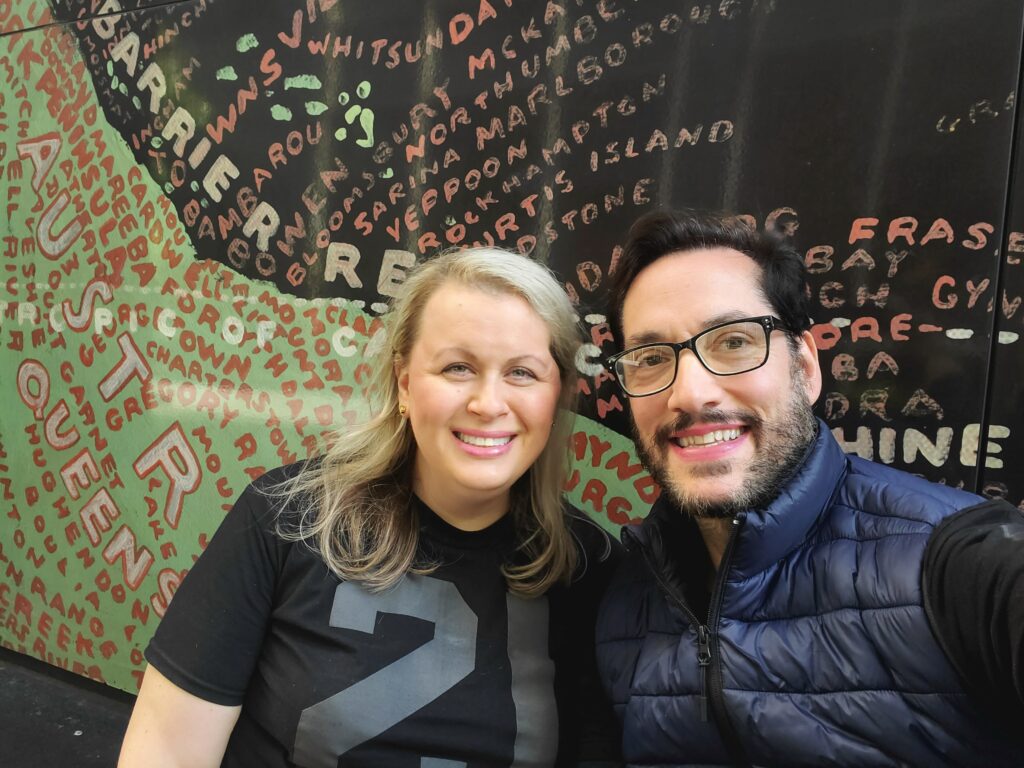
Jeffrey: The third “hard” question isn’t – to your earlier point – hard at all: are we worthy of making change so we can be happy?
Kate: Yep. This is the easiest of all of the hard questions. If doing things differently gets us to feeling happy, however tricky it may seem and however long it may appear to take, then hell yeah, we are worth making change, and acting upon the change.
Jeffrey: After you ended the relationship, you created change. You said you’d been deeply afraid of doing what ultimately led to the change. Once you did it, was there fire?
Kate: While the fire was something of a slow burning one, I definitely had a new perspective, and a better application – an activation, if you will – of my worth.
To know me is – possibly – to love me. And to love me is to show the love.
Jeffrey: And to know yourself is to know you are worthy of being loved.
Kate: Amen.
Jeffrey: Coming up, the last chapter of The Artist and the Subject, and we’ll break down how to put back together – or extract yourself from – a busted business relationship.
Kate: This one can’t be missed. Happy Thanksgiving – if you celebrate it – and see you in December!
Kate Harvie is the Executive Editor and Food & Drink Editor for In Step Beauty. She is the contributing writer and website manager for the Universal Hip Hop Museum, and the author of a book, Believe It and Behave It: How to Restart, Reset, and Reframe Your Life. Follow her on all the social platforms (@glossgal). Jeffrey Paul Aristotle may have had Jeffrey Paul in mind when he said, “Art completes what nature cannot bring to finish.” Jeffrey is an award-winning makeup artist and hairstylist. For 20 years and counting, he is Hollywood’s and Bollywood's go-to artist for celebrities, film festivals, red carpets, fashion, and movie PR. He is a resource for makeup artists, beauty columns fashion & beauty blogs as well as beauty magazines including ELLE, InStyle, Harper’s Bazaar, and beauty how-to books. Additionally, he is a chef, perfumer, writer, wellness advocate, beauty advisor, leader in Sufi and beauty meditations groups, and a practicing Dervish. Jeffrey believes that today's world has prompted everyone to have a deeper reverence for life and nature. His passion for truth, accompanied by an exploration into spirituality, has led him to create a new perspective in the beauty world. Through a blend of aesthetics and wellbeing, Jeffrey created a new paradigm called Beauty as Wellness, which includes the in-development Fragrance as Wellness. Jeffrey teaches people how to look deep into the world of beauty, which includes all types of fragrance, find tools to infuse and support a healthy life. This spiritual adventurer currently lives in Los Angeles. He spends time on the east coast to look after his parents. Follow him on Instagram – @theperfumeyogi, @fragranceaswellness, @jeffreypaulbeauty – and see him being a hair and makeup artist who seeks, and presents, the soulful expression of beauty.


